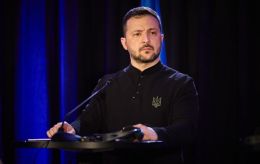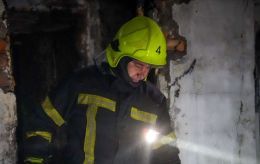'Butcher of Tehran': Who was Ebrahim Raisi and president powers in Iran
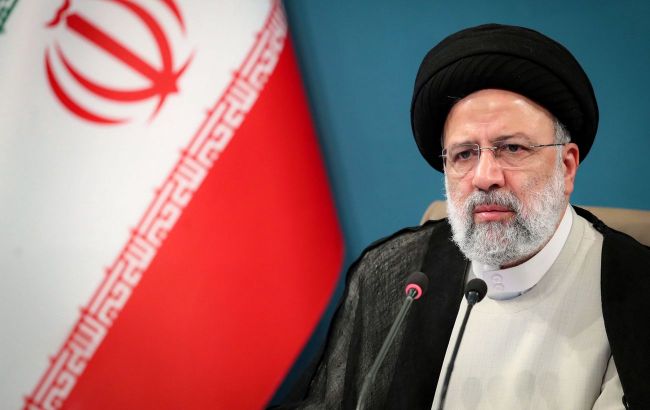 Photo: Iranian President Ebrahim Raisi died in a helicopter crash (Getty Images)
Photo: Iranian President Ebrahim Raisi died in a helicopter crash (Getty Images)
Iranian President Ebrahim Raisi has crashed in a helicopter in East Azerbaijan province. The sudden death has changed speculation about the successor to Supreme Leader Ayatollah Ali Khamenei, who is 85 years old and whose health has long been in the spotlight.
RBC-Ukraine reports who Raisi was, why he was nicknamed 'Butcher of Tehran', and whether his death will affect the ruling regime.
Sources: Reuters, Sky News, The Atlantic, Iranian media, as well as comments by Ilya Kusa, an analyst at the Ukrainian Institute for the Future.
Contents
- Details about Iranian president's death
- Who was Raisi and why he is called 'Butcher of Tehran'
- What kind of president he was and what his death means for Iran
- Who could become the next president
- Prospects for changes in Tehran's policy
Details about Iranian president's death
Shortly before, Ebrahim Raisi was on the Azerbaijan border, taking part, along with President Ilham Aliyev, in the launching ceremony of a dam on the Aras River. The helicopter crashed on the way back in a mountainous area in northwestern Iran.
All eight people on board died, including Foreign Minister Hossein Amir Abdollahian, Governor of East Azerbaijan Malek Rahmati, and Ayatollah Mohammad Ali Ale-Hashem.
The wreckage was found on the morning of May 20 after an overnight search that took place in a snowstorm. According to state TV, the helicopter crashed into a mountain peak. When rescuers reached the crash site, they found no signs of life among the passengers.
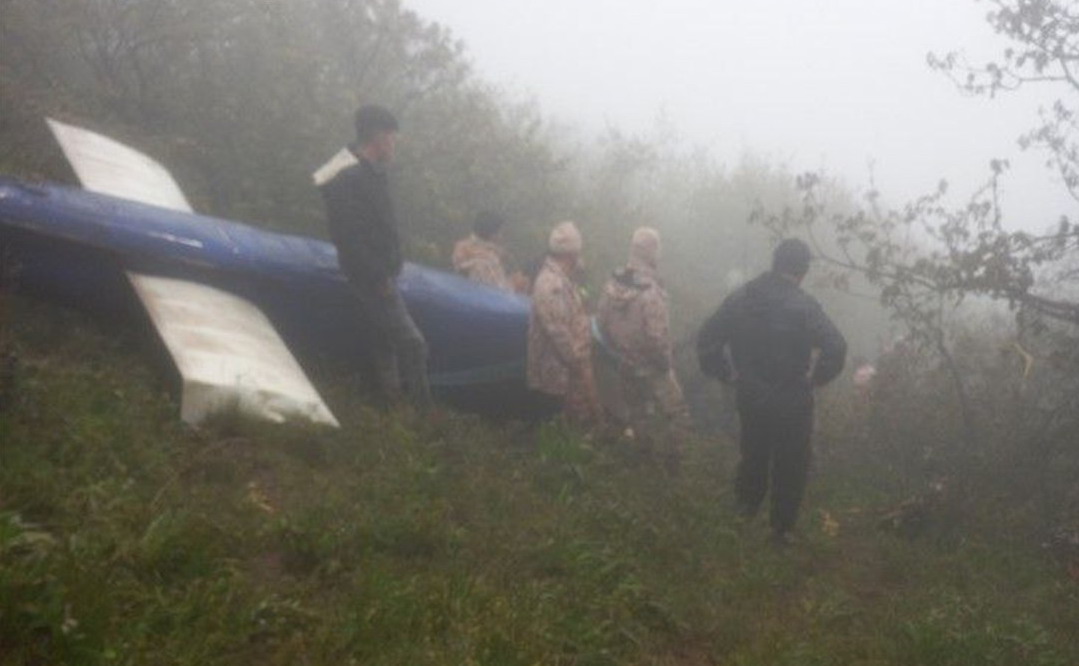
Photo: Wreckage of Ebrahim Raisi's helicopter (Fars)
After the news spread, state TV stopped broadcasting as usual. Channels broadcasted how Iranians were praying for Raisi, and a mourning tape appeared on the president's seat at a government meeting. The country declared five days of mourning.
Other states expressed concern and offered assistance. The European Union used the Copernicus satellite system to search for the helicopter, while Türkiye provided a Bayraktar drone. The drone reportedly helped locate the crash site. Russia also sent two planes with its rescuers.
The European Union, Armenia, Belarus, India, and other countries expressed condolences.
"The EU expresses its sincere condolences for the death of President Raisi and Foreign Minister Abdollahian, as well as other members of their delegation and crew in a helicopter accident. Our thoughts go to the families," Charles Michel, President of the European Council, wrote on X.
Who was Raisi and why he is called 'Butcher of Tehran'
Ebrahim Raisi was born on December 14, 1960, in Mashhad, in the family of a clergyman. He studied under several famous ayatollahs and holds a doctorate in private law from Motahari University.
At the age of 19, as a fanatical fundamentalist revolutionary, he supported the overthrow of the last Shah Mohammad Reza Pahlavi and took an active part in the Islamic Revolution of 1978-1979.
After the revolution, he was appointed prosecutor of Karaj. Later he became the prosecutor of Hamadan province. In 1985, he moved to the capital, taking up the position of Deputy Prosecutor of Tehran. Three years later, he was granted special powers to resolve specific religious and legal issues in three provinces - Lorestan, Semnan, and Kermanshah.
At that time, he became one of the organizers of the massacre of political prisoners. For his role in the mass executions, he was nicknamed the 'Butcher of Tehran'.
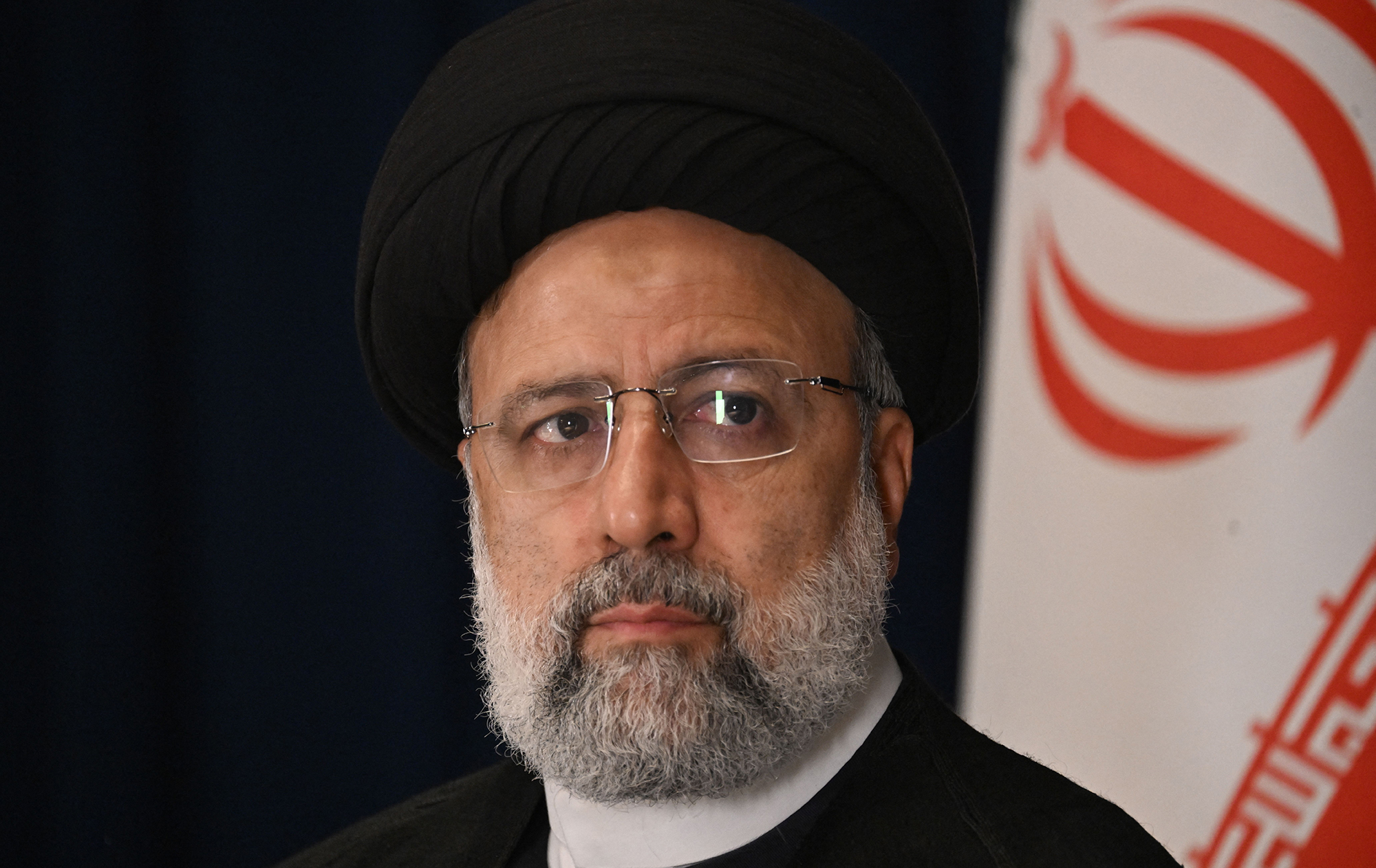 Photo: Raisi was nicknamed the 'Butcher of Tehran' for his mass executions (Getty Images)
Photo: Raisi was nicknamed the 'Butcher of Tehran' for his mass executions (Getty Images)
According to various sources, the victims ranged between 2,800 and 30,000 people. The ayatollahs' regime cracked down on their opponents - monarchists, communists, mujahideen, and others. Executions were carried out around the clock, to the point people were hanged on cranes.
In 2004, Raisi was appointed Deputy Prosecutor of Iran. In 2005 he refused the post of Security Minister, and since 2012 he has worked as Prosecutor of the Special Spiritual Court. In August 2014, he became the Prosecutor General of Iran, and two years later he left to head one of the richest foundations in the Islamic world, Astan Quds Razavi.
He first ran for president of Iran in 2017 but lost to Hassan Rouhani, who was re-elected for a second term. He won the 2021 election with promises to reduce poverty, fight corruption, and build 4 million homes.
He stated that he would seek to lift Western sanctions, but would not allow other countries to dictate terms. He was a supporter of a hard line in relations with the West while suggesting a return to the nuclear agreement in exchange for lifting sanctions.
Even though 36 years have passed since the massacre of political prisoners, the 'Butcher of Tehran' nickname has stuck with him for a long time.
"Butcher of Tehran Ebrahim Raisi was rightly condemned by the international community for his direct role in the extrajudicial executions of more than 30,000 people," commented Israeli Foreign Ministry spokesman Lior Haiat on Raisi's election victory.
What kind of president he was and what his death means for Iran
Raisi won the election, which was the least competitive since 1997. Supreme Leader Ayatollah Ali Khamenei made sure to keep out not only reformists but also more moderate conservatives.
Apparently, Raisi was elected because he could never become a rival to Khamenei. In a 2017 debate with Hassan Rouhani, he was completely uncharismatic. His stay in power since 2021 shows not only his incompetence but also his political irrelevance.
"Some called him the 'invisible president'. During the Women, Life, Freedom movement that shook Iran between 2022 and 2023, only a few shouted slogans against Raisi because they knew that power was in other hands," writes Arash Azizi, a senior lecturer in history and political science at Clemson University, in The Atlantic.
Unlike most countries, the Iranian president is not the head of state. He is elected for four years, cannot serve more than two consecutive terms, and performs classic representative and prime ministerial functions.
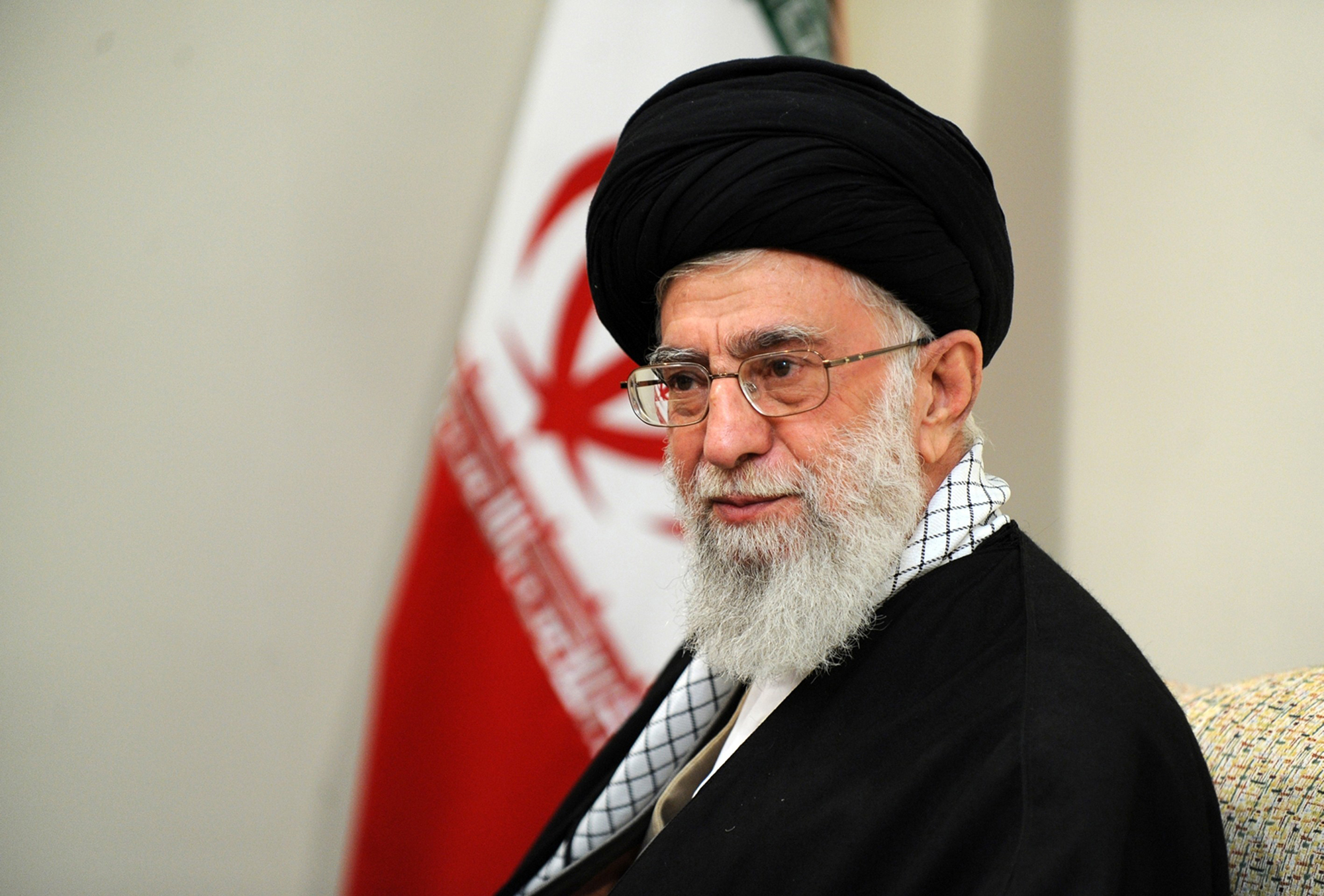 Photo: All power in Iran is concentrated in the hands of Ayatollah Ali Khamenei (Getty Images)
Photo: All power in Iran is concentrated in the hands of Ayatollah Ali Khamenei (Getty Images)
All power is concentrated in the hands of Ayatollah Ali Khamenei, who is the elected Supreme Leader of Iran for life. It was important to him that Raisi follow the regime's line, and the latter's qualities probably made him a safe successor to the Ayatollah.
According to Ilya Kusa, an analyst at the Ukrainian Institute for the Future, the sudden death of the 63-year-old president was a rather unpleasant event, but not an existential threat to the political regime.
"Of course, it is stressful for the political system. But I do not expect any fundamental changes. Much depends on how the election of a new president will go and who will be elected. But that's another story and it's hard to say anything specific right now," he told RBC-Ukraine.
Who could become the next president
According to the constitution, First Vice President Mohammad Mokhber will become interim president. He is close to Ali Khamenei and was part of a group of Iranian officials who visited Moscow in October 2023 and agreed to supply missiles and drones, Reuters reports.
As interim president, Mokhber, along with the speaker of parliament and the head of the judiciary, will be part of a council tasked with organizing a new election within 50 days.
The election is a formality, as it is expected that the candidate chosen by the Supreme Leader will win. It is unlikely to be the son of Ayatollah Mojtaba Khamenei, who has become the main contender for the presidency.
"He is one of the most ambitious figures in the conservative camp and in theory could run for president. But the question is how logical this is on his part because the post of president of Iran zeroes out political capital. The president is responsible for everything, and all problems are blamed on him," Kusa explained.
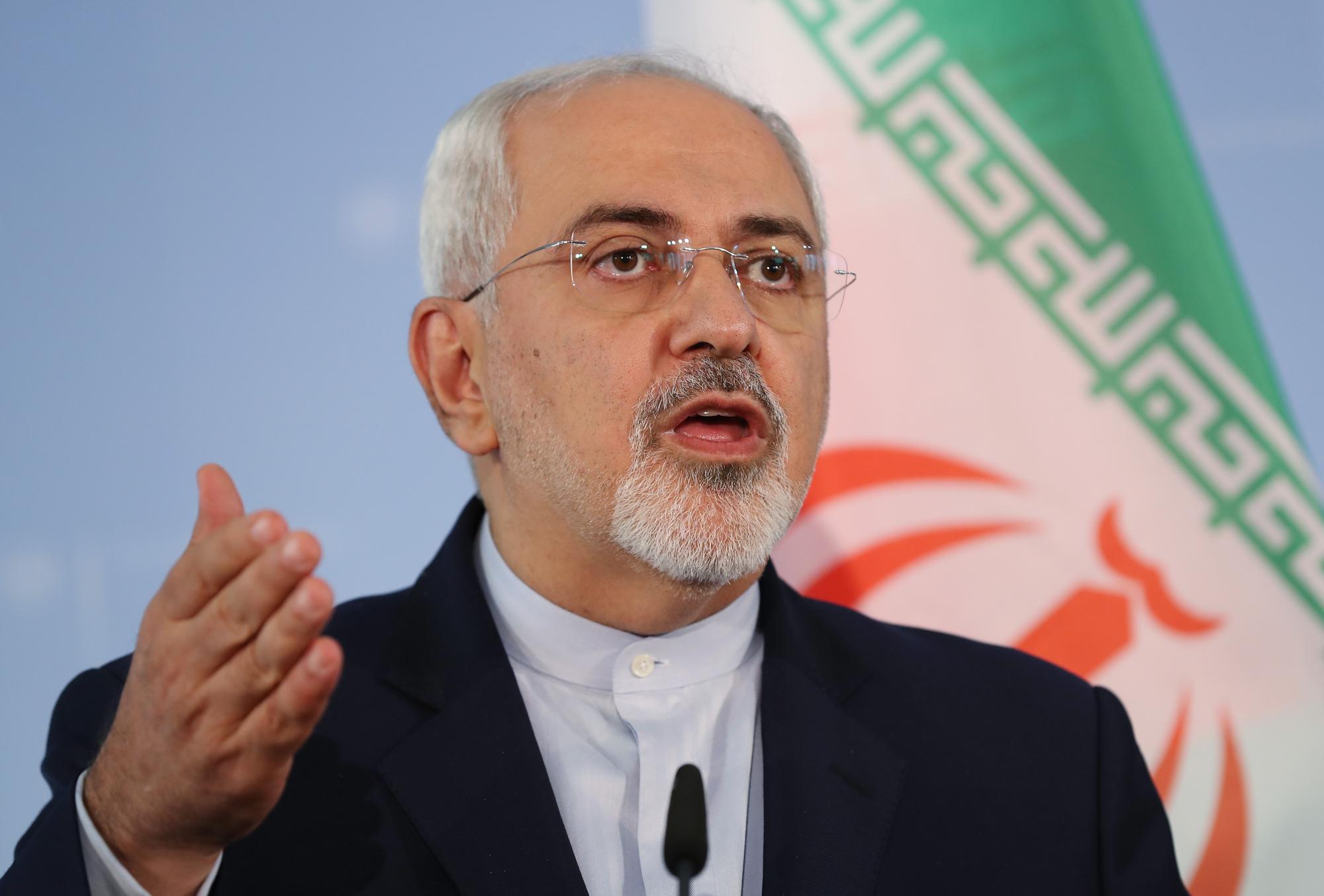 Photo: Former Iranian Foreign Minister Mohammad Javad Zarif may be among Raisi's possible successors (Getty Images)
Photo: Former Iranian Foreign Minister Mohammad Javad Zarif may be among Raisi's possible successors (Getty Images)
In his opinion, the current Speaker of Parliament Mohammad Bagher Ghalibaf or Tehran Mayor Alireza Zakani will most likely be nominated for the presidency.
"They are also quite powerful figures in the conservative camp, and the electoral field can be cleared for them if such a decision is made. This is about a conservative president and the continuation of the ayatollahs' course," the analyst said.
If a moderate candidate is chosen, there are options, for example, with former Foreign Minister Mohammad Javad Zarif or former Parliament Speaker Ali Ardashir Larijani. But again, it is unclear what decision the system will make.
Prospects for changes in Tehran's policy
Raisi's death has removed one of the toughest and most uncompromising players in the Middle East, Sky News reports. Under his watch, Iran launched its first direct attack on Israel and made increasingly adventurous interventions.
Under his leadership, Tehran helped the Yemeni Houthis to jeopardize shipping in the Red Sea, Lebanese Hezbollah to draw Israel into battles for the northern border, Iraqi insurgents to attack American soldiers, and Hamas terrorists to wage war against the Jewish state.
The country is weakened, and the government has lost its credibility because of economic failures. Perhaps, the time has come for a new upsurge in the protest movement, similar to the one in 2022 after the tragedy happened to Kurdish girl Mahsa Amini, who was beaten to death by the vigilante police for refusing to wear a hijab, Sky News notes.
Analyst Ilya Kusa sees no reason for mass protests. At least for now.
"A day has passed and there have been no protests. As for me, the emotional background is not helping. Protest against what? There's no good reason to protest. Although Raisi was not popular, I don't really understand why people would take to the streets en masse," he told RBC-Ukraine.
In his opinion, the protest potential is more likely to manifest amid the election. This is always a trigger point.
"And if not, a more stressful event for the regime could be the transition of power at the highest level. Meaning, if Ali Khamenei, who is 85 years old and whose health is rumored to be in poor shape, dies," the analyst said.
The death of "Russia's true friend," as Vladimir Putin calls him, is unlikely to affect foreign policy. Accordingly, there will be no détente with the United States, Israel, or refusal to provide military assistance to Moscow in its war against Ukraine. Iran will stay on the anti-Western vector, so in this regard, we should not expect any drastic changes, Kusa concluded.
